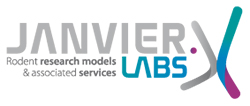Anti-Apoptosis Effect of Astragaloside Iv on Alzheimer's Disease Rat Model via Enhancing the Expression of Bcl-2 And Bcl-Xl
DOI:
https://doi.org/10.23675/sjlas.v37i2.206Abstract
The aim is to explore the protective effect of Astragaloside IV on Alzheimer’s disease (AD) in rats induced by amyloid-ß peptide (Aß1-42) and its potential therapeutic mechanism. Methods: 50 Male Sprague Dawley rats were divided into five groups (10 rats for each): control group, model group, treatment groups 1~3. 10μg Aß1-42 was injected bilaterally into the dorsal dentate gyrus of the hippocampus of rats in the model and treatment groups to prepare the AD models. 24h after modeling, Astragaloside IV administration, with different drug dosages of 20mg/(kg•day), 40mg/(kg•day) and 60mg/(kg•day), was performed by gastric perfusion for rats in the treatment group 1~3. Later on, the cognitive ability of rats was examined by a series of behavioral tests, and the expression of Bcl-2 and Bcl-xl in the hippocampus of rats was detected by the fluorescein based Quantitative RT-PCR. Results: The spontaneous alternation test in a Y maze and Morris water maze task have demonstrated that the repeated daily administration of Astragaloside IV at the doses of 20mg/kg bw/day) (p<0.05), 40mg/kg bw/day) (p<0.01), and 60mg/kg bw/day) (p<0.01) significantly ameliorated the impairment of performance caused by Aß1–42. Furthermore, Astragaloside IV also enhanced the expression of Bcl-2 and Bcl-xl in hippocampal neurons of rats in a dosage-dependent manner. Conclusion: These findings suggest that Astragaloside IV could alleviate cognitive impairment and enhance the expression of Bcl-2 and Bcl-xl in hippocampus of rat models with AD.







